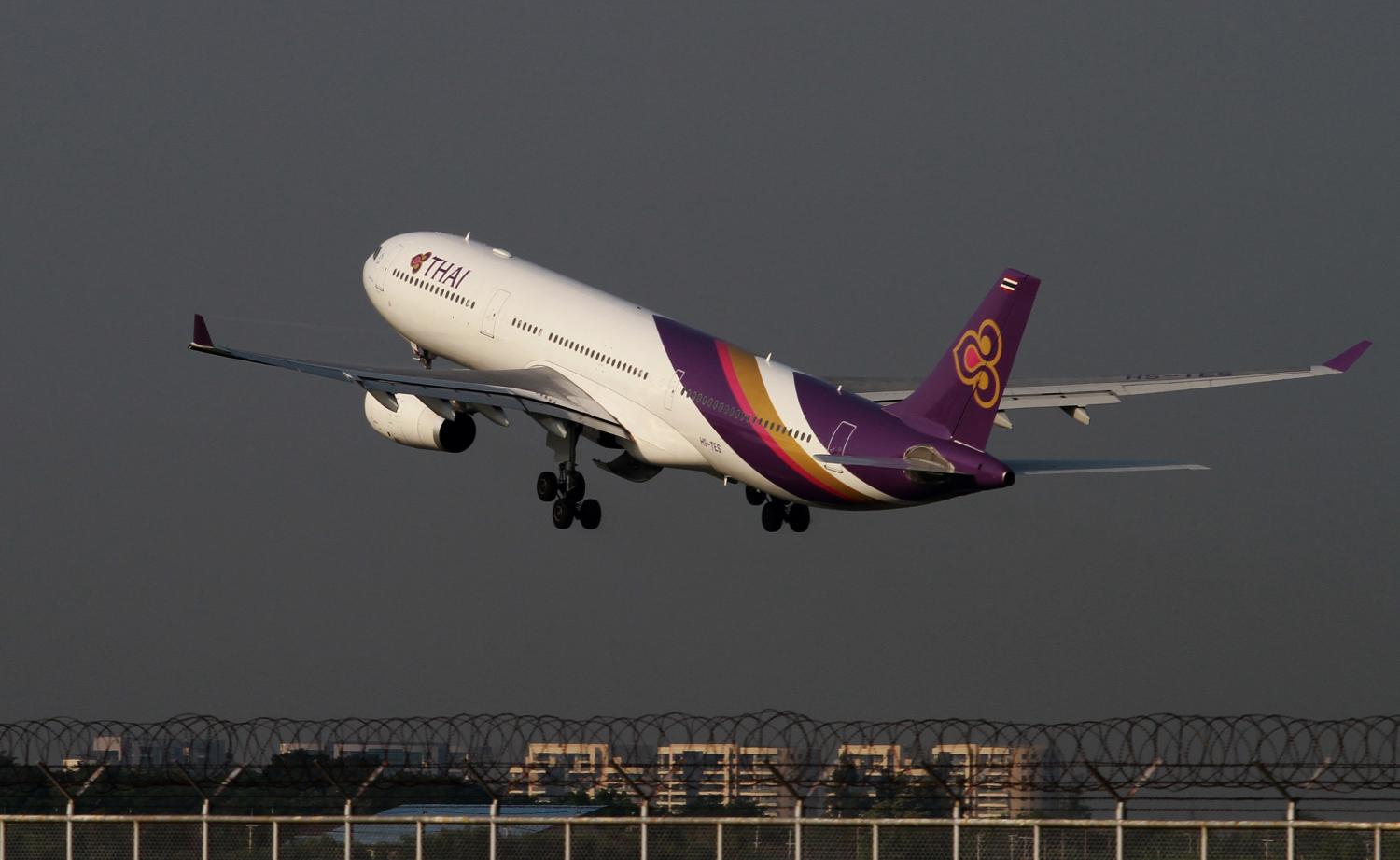
Thai Airways International (THAI) posted a 55.11 billion baht net profit last year on 81.52 billion baht in revenue from one-time transactions, mainly asset sales, and a 19.70 billion baht operating loss.
The airline said last year's operating loss was down 44% from the previous year but revenue from operations fell by 51% from 2020 to 23.75 billion baht.
Income from passengers and cargo decreased by 59.9% to 24.60 billion baht.
Operating expenses were at 43.45 billion baht, down by 48.2%.
Apart from asset sales, the 81.52 billion baht in revenue from one-time transactions included income from debt restructuring, the sale of investments and restructuring and downsizing.
As of Dec 31, the airline and its subsidiaries had assets of 161.22 billion baht, down 23% from a year earlier. Its accumulated debt was 232.47 billion baht, down by 31.2%.
Worldwide, pressure on airline profitability diminished in the last quarter of last year with the improvement expected to continue this year, according to a business confidence survey of airlines' chief financial officers (CFOs) and heads of cargo, conducted by the International Air Transport Association (IATA).
However, the respondents were more cautious than in the previous survey due to the Omicron impact, soaring jet fuel prices and rising market competition that puts pressure on yields.
A majority of survey participants reported improving passenger and cargo volumes in last quarter of 2021 versus the same period of 2020.
They also expect this trend to continue in the future -- notably on the passenger side of the business.
The survey results suggest no significant change in employment levels in the last quarter of 2021 versus the same period a year ago.
On a positive note, 59% of respondents expect increased hiring in the next 12 months thanks to recovering passenger operations.
Also, 55% of the survey participants recorded higher input costs in the last quarter year-on-year, largely due to soaring jet fuel prices and staff shortages.
The same share of respondents expects further input cost increase in the future.
Two thirds of airlines in the survey predict that passenger yields will stabilise at current levels or fall due to increased competition in the market.
On the cargo side, 58% of respondents expect yields to remain elevated or to rise further -- down from 68% in the previous survey.
The latest financial results confirm that the pressure on the industry's operating profitability eased in the third quarter of 2021.
In the sample of 87 airlines, operating loss improved from 13.6% of revenues in the second quarter to 2.6% in the third quarter last year, according to IATA's Airlines Financial Monitor.







